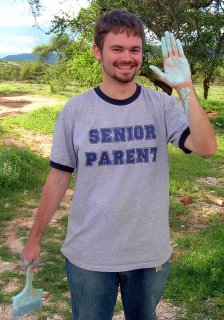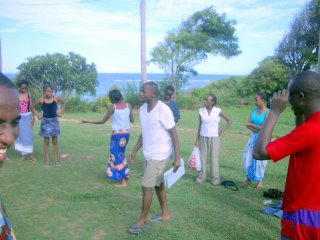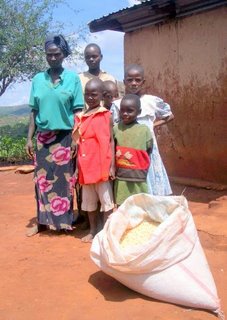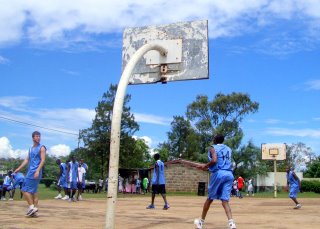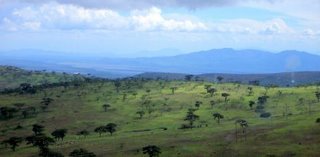
Our group with the KMQ community
This past weekend our group of six (minus Rachel- sad!) volunteers went to a Maasai village to build a nursery for a school. The community is called KMQ, for the Kenya Mining Quarry for marble nearby established in 1928. Migrant workers earn about $2/day for chipping away 5 tonnes of marble, and most do not last longer than 2 years. They cooked us a meal each day (see kitchen above) and had already built the 3-room structure when we arrived. All that was left for us to do is paint.
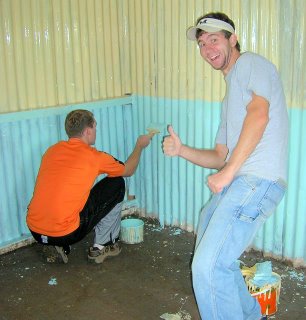
Keep up the good work, Brian!
Two long days of painting didn't keep us from joking around with each other and playing frisbee with some of the Maasai. On Sunday we hiked over 30 minutes up a hill to a church under an acacia tree. During the morning on the weekdays it doubles as a school. Laona, a Maasai women, serves as both preacher and teacher.
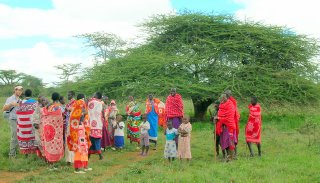
Saying Farewells Outside of Church.
We returned to the school grounds to a ceremony held for us by the community, complete with two slaughtered goats, lots of singing by the women and gifts of beaded jewelry for each of us. As a group, we presented stationery and pencils for the more than 600 students at KMQ Primary.

Presenting the Stationery.
Overall, I enjoyed the experience very much, although I was left wondering many things: Will nursery encourage parents to send their children to school at an early age? Will the Maasai women continually be taken out before they reach 13 to be circumcized and married off? Will the nearby marble mine continue to pollute the air and exacerbate health problems of children, even as their parents make a living from the industry?
I look forward to the day when I can return to this community and see how they are continuing on. Until then, we can all pray: for the parents to remain faithful as they find ways to pay for uniforms to send their kids to school; for the children to study hard even as they walk many kilometers to and from school each day; for the committee as they find ways to store water during the short rains in preparation for the long drought; for the Headmaster in $2,000 of debt for his degree in Early Childhood Education...
... for all those things that remind us that while we are not at the center of the world, we can play a definitive role in others' lives, and they in ours.
